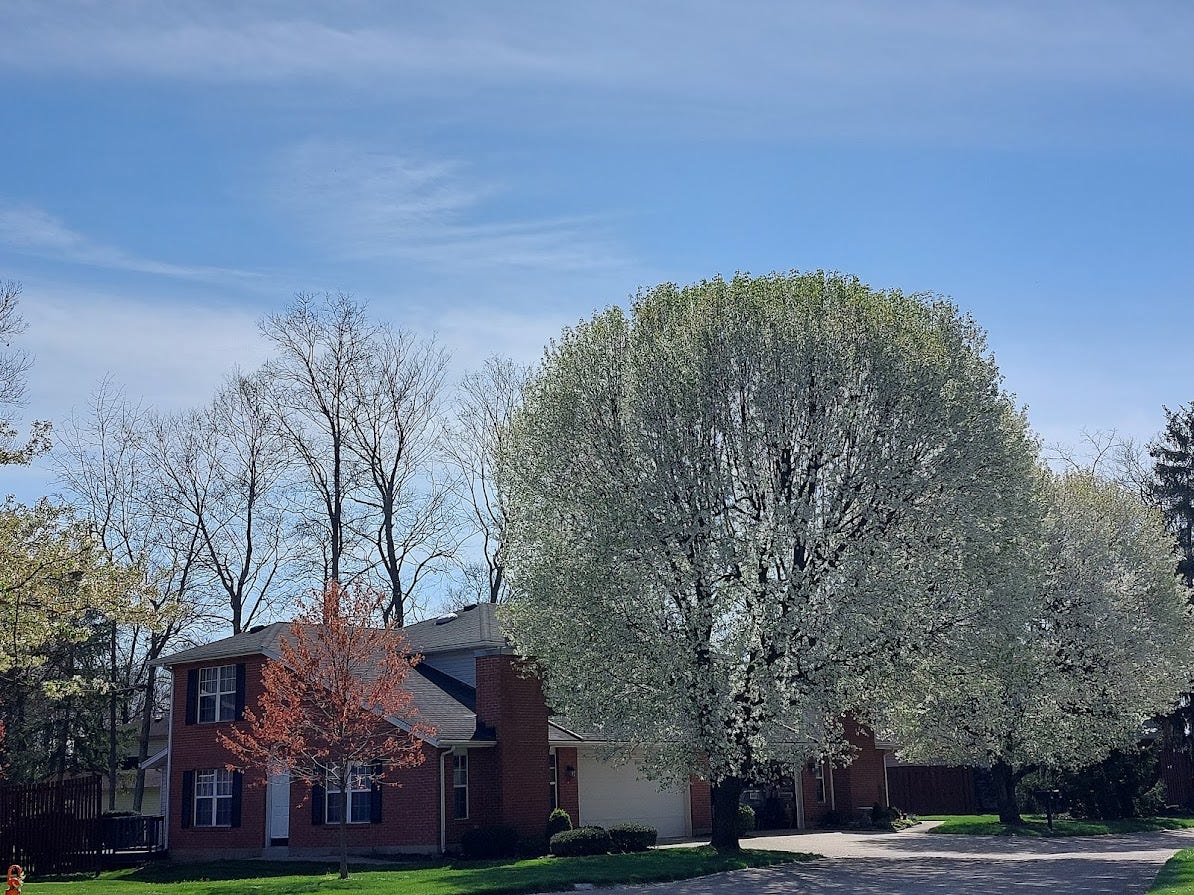A Full Eclipse Day in the Neighborhood
Dispatches from the path of totality
I thought we were walking to a field to see the full eclipse, but it turned out we were just going to stay in the neighborhood. Why wouldn’t we? No crowds, no noise, and the view just as good. So we set up a few lawn chairs under an evergreen and waited.
It wasn’t my neighborhood. It was our friends’ neighborhood, a little corner of Dayton, Ohio where al…



